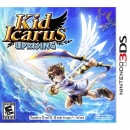SamuelRSmith said:
jarrod said:
Demotruk said:
jarrod said:
|
jammy2211 said:
They abandoned the GC because of poor software sales.
|
Not all of them. I still can't figure out how GC didn't get games like Soulcalibur 3, Burnout 3 or Tales of the Abyss?
|
I presume you're being ironic, because moneyhatting is such an obvious answer and we know it was well practiced in that gen.
|
Well, for Soulcalibur that was actually said/gloated about by Sony. Then karma kicked in and SC3 sold worse than the least selling version of SC2 (Xbox). lolz.
Tales, I dunno, probably. You'd think after Symphonia almost hit a million, they'd want to follow that up. Burnout definitely wasn't though, I think Criterion just hates Nintendo. Which is strange, since Burnout 1-2 sold better on GameCube than Xbox...
There's probably more examples (Capcom fighters come to mind, CVS2 sold significantly more on GC than Xbox), but the truth is 3rd parties generally did comparably on GC and Xbox, yet in 2003/2004 nearly all of them decided to drop one platform and continue on with the other...
|
Some theories that I've just thrown together (probably won't hold up under scrutiny, but, who knows)
- Cheaper development costs, I don't know much about the Gamecube's hardware, or indeed the Xbox's, but what I do know is that there were a lot of PC/Xbox ports, implying that the hardware was very similar. PC architecture is well travelled, with a lot of knowledge, games could be produced at lower costs. This is specially true. The Xbox used standard DirectX shaders, and a Pentium. The GC on the other hand used a different type of shaders (and the Wii has shown that 3rd party developers haven't mastered them yet) and a PowerPC. The Xbox WAS a PC.
- Less optimisation. Again, I don't know much about the hardware of the units, but it appeared (to me, atleast), that the Xbox was clearly the strongest hardware out there last generation (this is just based on looking at games on the consoles), this means that developers could get more out of the Xbox with less optimisation, this sort of ties in with the first point. This is true too, even when the difference between XB and GC was not that big compared to the difference between PS2 and GC. But it became more apparent when you combine it with your first point.
- Greater developer relations: Microsoft was the new boy, and keen to build up developer relations, as such it wouldn't be moronic to assume that they offered greater financial incentives to publishers/developers than what Nintendo did/could afford. This is MS, how could it be wrong?
- Lower royalties per title - I don't know if this is necessarily true, but if it is, it'd definitely be enough of an incentive for publishers to consider the Xbox over the Gamecube. Probably, considering the above point.
- Greater predictability of market. Typically speaking, the average Xbox user was a teenage American boy who loved shooters/sports games, it's far more difficult to pin point the typical demographic of a Gamecube user. Greater predictability/security encourages greater investment. True about the Xbox user, and we Nintendo fans are not easy to please... the problem is that 3rd party developers think that we ONLY want Nintendo stuff.
- More up-front sales. Again, this is more down to demographics/stereotyping, but the typical Xbox gamer was more likely to pick up a title in its first month of release than the typical Gamecube player. Gamecube's slow-burning sales would mean that more sales would come at times when revenues per title are far lower. Well this is up to interpretation.
- The Gamecube discs. The Xbox used a standard DVD, I believe, which means it was far cheaper, thanks to economies of scale, to produce Xbox games per-unit, than Gamecube games. Of course, this only comes down to a couple of cents a unit, but that builds up over thousands and millions of units of sales. Very true. Just like CD vs Cartridges back in the day, it was all about production costs and production speed. Propietary formats will have the lower hand.
- Xbox Live. This prevented players from selling their old games, drying up the second hand market. Although this didn't effect the sales data we're looking at, it certainly would have suggested to publishers that there's a greater risk of losing sales to the second hand market on the Gamecube than the Xbox. This might as well be true.
- Xbox Live. The ability to sell content to their users after the game was sold was certainly a lucrative proposition to the publishers.
|



























































